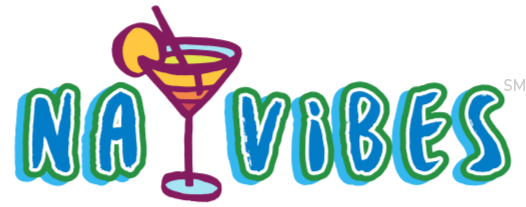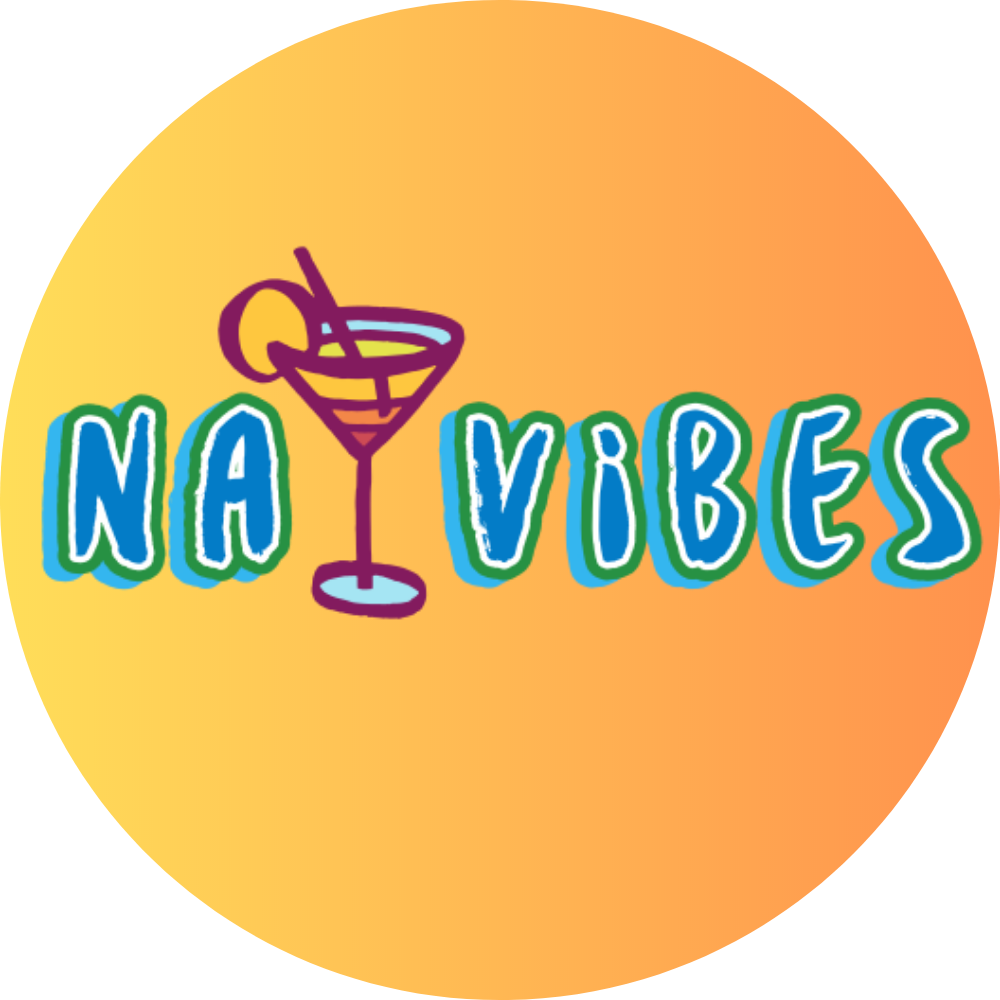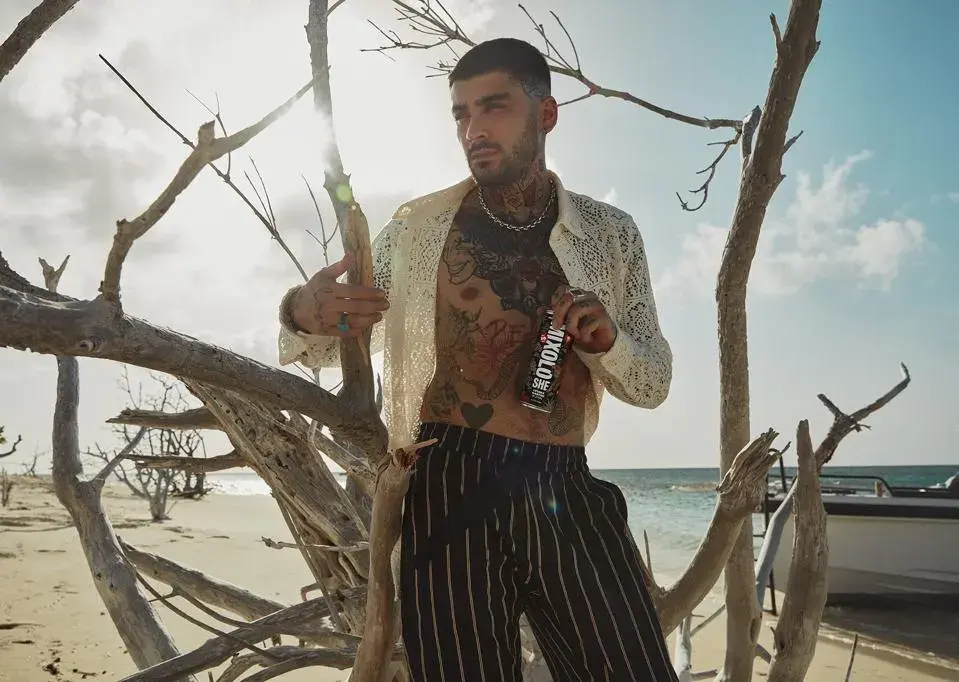9 Hard-Earned Lessons From 365 Days Of Sobriety
- Trish Silverman

- Nov 19, 2022
- 5 min read
Updated: Jan 30, 2023
A year on from giving up alcohol for good, writer and musician CJ Thurlow reflects on what she’s learnt – and what she wishes she had known 12 months ago.
by CJ Thurlow for Vogue. 15 November 2022

Sobriety tears you open and leaves you open. That is the simplest way I can explain it. There is no escape hatch, nowhere to run and hide. You take all the stabilisers off your life. There is nothing to hold onto because this is deeply internal work, and you have to turn up every day. The work begins with one simple, seismic instruction: do not drink. But beneath that is a cavern in which lifelong questions reverberate, bellowing for answers.
Everything suppressed rises to the surface. Everything you’ve ever pushed down, ignored, batted away, held off facing, comes to party. It’s now your job to scrutinize these pain-phantoms as they present themselves. You are being given a chance to exorcise them for good. What remains in their wake is an entirely new understanding of the world. It’s like a yearlong gut-punch, but somehow, doubled over, you are beginning to smile.
I quit alcohol because I cannot control my alcohol use, and I no longer want to be defined by that fact. Over my 20 years as a drinker, I had cultivated quite a habit. Drinking is the only mode of socializing I’ve ever known how to do since I first cracked open a Smirnoff Ice as a teenager. I think a lot of natural introverts find this to be the case. Drinking gives you a new personality, it makes you louder, wilder and more confident than you really are.
My idea of glamour has always been a rebellious woman. I grew up listening to The Slits, X-Ray Spex and Bikini Kill and watching the tail end of the ’90s “Ladette” era play out on TV and in the tabloids. I loved booze, cigarettes and narcotics as much as the next “geriatric millennial” whose peak party years played out in Anti-Social and Boombox from 2004 to 2007 to a soundtrack of “Up the Bracket”. Life revolved around my Old Street flatshare, and dinner was an ecstasy tablet served on a china plate with a knife and fork. There were no phones documenting our every move; people just turned up, at the club, at the afters, at the after-afters, climbing through windows at 8am the next morning in sunglasses with water guns and Red Stripes.
Then that scene came to an abrupt end. Against the backdrop of the Iraq War, financial crash and doom-laden Tory/Lib-Dem coalition newly appointed to power, 2010 heralded the beginning of the new gothic era. Hedonism’s sombre (and far sexier) twin was here: still high, but now with an existential twist. Our clothing turned from acid bright to all black. By then I had a band and a Blackberry. Social media was suddenly important, and things could no longer be solved by shaking glow sticks with strangers.
And yet, even as the music changed and the clothes changed and the community grew up, my habits stayed with me everywhere I went. I didn’t even question it, only upgrading what I consumed in accordance with my age: swapping cans of cider for bottles of wine, bumps of this for lines of that. I don’t know when exactly it happened, but suddenly I couldn’t go out without solo pre-drinks or solo post-drinks and, of course, all the drinks in between. I couldn’t seem to socialize on any level – date, have sex, play a gig – without being, if not fully drunk, then teetering on the brink of it. I was always sick, always blue. I didn’t connect the dots though. I didn’t have the vocabulary yet. No one used words like “anxiety” back then, and therapy was something only people in American sitcoms or Holland Park did.
At its root, my drinking was a disappearing act. My real self would retreat as my drunk persona lunged forward. I was spontaneous, sure, but I was also aggressive and prone to exploding. I was fun, absolutely, but I was also dangerously sloppy, blacking out in cabs, waking up with cuts and bruises, vomiting on my best shoes.
By the time I turned 36, the lights were on, but I did not know how to leave the party. It took two years of false starts to find myself at the real beginning. For a while, I would celebrate the end of each one-to-two-month “dry” stretch with an unprecedented blow out before giving up again, which kept me in a permanent state of low-level depression. The hangover cycle used up all my energy, time, space. At 38, I knew it was over – I’d done partying to death – but could I actually change?
Somehow, I began to trust that my curiosity would win out in the end, because I really did want to know: what’s next? What happens after alcohol? What else is out there, or inside me? What happens if I stop avoiding, deferring, beating myself up and really shed the past? Sobering up cut the cord on a decade-long pile-up of shame I had been hauling around with me about my experiences in the music industry. When you let go of things like that, space opens up inside of you, because that same dusty, admonishing narrative isn’t there to reach for anymore.
By quitting alcohol, I was immediately thrown into motion, unstuck. Everything I’d been looking for – adventure, newness, the courage I knew was mine – materialised. I no longer feel like a passenger in my own life. I might be standing completely still waiting for the Tube, but inside I’m pulling up with screeching tyres, car in flames, bandana around my head. This past year, I have travelled lightyears. The momentum is real. I feel it everywhere, every day.
This past year, and every year going forward, is my bid for “emotional repair”. I picked up this phrase from the artist, Louise Bourgeois, whose work is based on this idea. “I came from a family of repairers. The spider is a repairer. If you bash into the web of a spider, she doesn’t get mad. She weaves and repairs it.” Just as a spider spins its silk and mends its web, a human has inside them all the materials they need to repair their world, too.
Below, nine things I wish I’d known would happen in my first year of sobriety.
Your social life will capsize. Bar ride-or-dies, your relationships will seem to sink and reappear reconfigured, or they will wash away completely. You have to remember some friends weren’t prepared to lose drinking you, and they experience an abrupt loss, too. Allow for this. Everyone experiences a reshuffling of the social deck. It’s weird and okay. You will also freak certain acquaintances out because you no longer drink. When people ask if you want a drink, respond with, “I’m good for now,” because it disinvites further questions. Hold something that looks alcoholic to ward people off, ie an alcohol-free beer or a soda and lime that looks like a vodka tonic. If someone brings it up (and they probably will), it will feel like they’ve put a “No Fun, Keep Clear” cap on you. You’ll die a bit inside, but you’ll get through it.
Read the rest of the article here: https://www.vogue.co.uk/arts-and-lifestyle/article/what-happens-when-you-give-up-drinking
Our advocacy for NA awareness is partially funded by purchases from our site. As an Amazon Associate, we may earn a small commission at no cost to you.







Comments